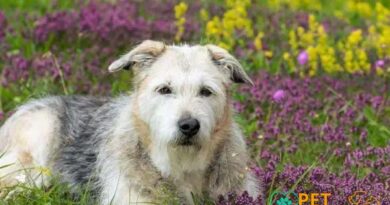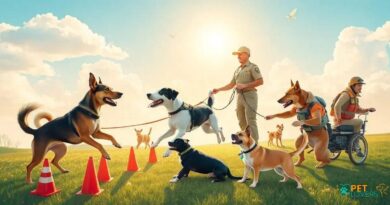What is Variação de habilidades
What is Variação de habilidades?
Variação de habilidades, or skill variation, refers to the differences in abilities exhibited by individual dogs within a breed or across different breeds. This concept is crucial for understanding how dogs can perform various tasks, from herding to companionship, and how these skills can be influenced by genetics, training, and environment. Each dog possesses a unique combination of traits that contribute to its overall skill set, making the study of these variations essential for breeders, trainers, and dog owners alike.
The Role of Genetics in Skill Variation
Genetics plays a significant role in determining a dog’s abilities. Certain breeds have been selectively bred for specific tasks, such as hunting, guarding, or herding. For instance, Border Collies are renowned for their herding skills, while Labrador Retrievers excel in retrieving tasks. Understanding the genetic predispositions of different breeds helps in predicting the potential skills of individual dogs, allowing owners to tailor training approaches that align with their dog’s natural abilities.
Environmental Influences on Dog Skills
While genetics lays the foundation for a dog’s abilities, environmental factors also play a critical role in skill variation. The upbringing, socialization, and training experiences a dog undergoes can significantly enhance or hinder its natural talents. For example, a dog raised in an active household with ample opportunities for exercise and mental stimulation is likely to develop better skills than one that is kept in a more sedentary environment. This highlights the importance of providing a nurturing environment that fosters skill development.
Training Techniques and Their Impact
Training techniques are pivotal in shaping a dog’s skills. Positive reinforcement methods, such as rewards and praise, can effectively encourage desired behaviors and enhance a dog’s abilities. Conversely, harsh training methods may lead to fear and anxiety, ultimately stunting a dog’s skill development. Understanding the nuances of various training approaches allows owners to maximize their dog’s potential by fostering a positive learning environment that promotes skill variation.
Assessing Skill Variation in Dogs
Assessing skill variation among dogs involves observing their performance in various tasks and activities. This can include agility courses, obedience trials, and even simple play sessions. By evaluating how different dogs respond to challenges and tasks, owners can gain insights into their unique skill sets. This assessment not only helps in identifying strengths and weaknesses but also aids in tailoring training programs to enhance specific abilities.
The Importance of Socialization
Socialization is another critical factor influencing skill variation in dogs. Exposing dogs to different environments, people, and other animals helps them develop essential social skills and adaptability. A well-socialized dog is more likely to exhibit confidence and versatility in various situations, which can translate to improved performance in tasks. Therefore, prioritizing socialization during a dog’s formative years is vital for fostering a well-rounded skill set.
Breed-Specific Skills and Their Variations
Different breeds exhibit unique skill variations based on their historical roles and purposes. For example, herding breeds like Australian Shepherds possess innate skills for managing livestock, while toy breeds may excel in companionship and agility. Understanding these breed-specific skills allows owners to set realistic expectations for their dogs and engage them in activities that align with their natural abilities, enhancing their overall quality of life.
Challenges in Skill Development
Despite the potential for skill variation, several challenges can impede a dog’s development. Factors such as health issues, lack of motivation, or insufficient training can hinder a dog’s ability to showcase its skills. Recognizing these challenges is essential for dog owners and trainers, as it enables them to implement strategies that address these obstacles and promote skill enhancement effectively.
Celebrating Skill Variation in Dogs
Ultimately, celebrating skill variation in dogs enriches the human-animal bond. Each dog is unique, with its own set of abilities and personality traits. Embracing these differences not only fosters a deeper understanding of our canine companions but also encourages owners to engage in activities that highlight their dog’s strengths. Whether it’s agility training, obedience classes, or simply enjoying playtime, recognizing and nurturing skill variation enhances the overall experience of dog ownership.



